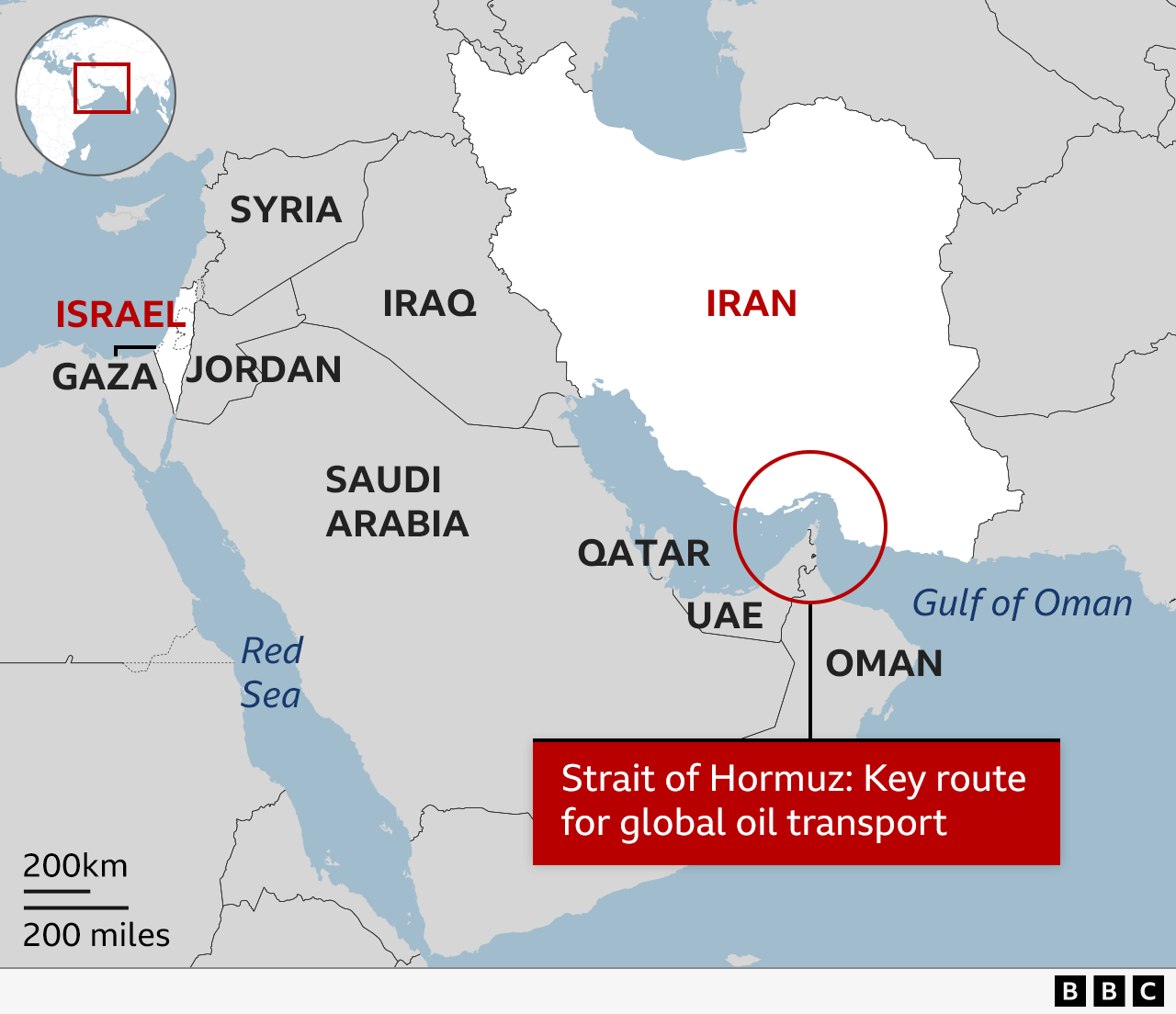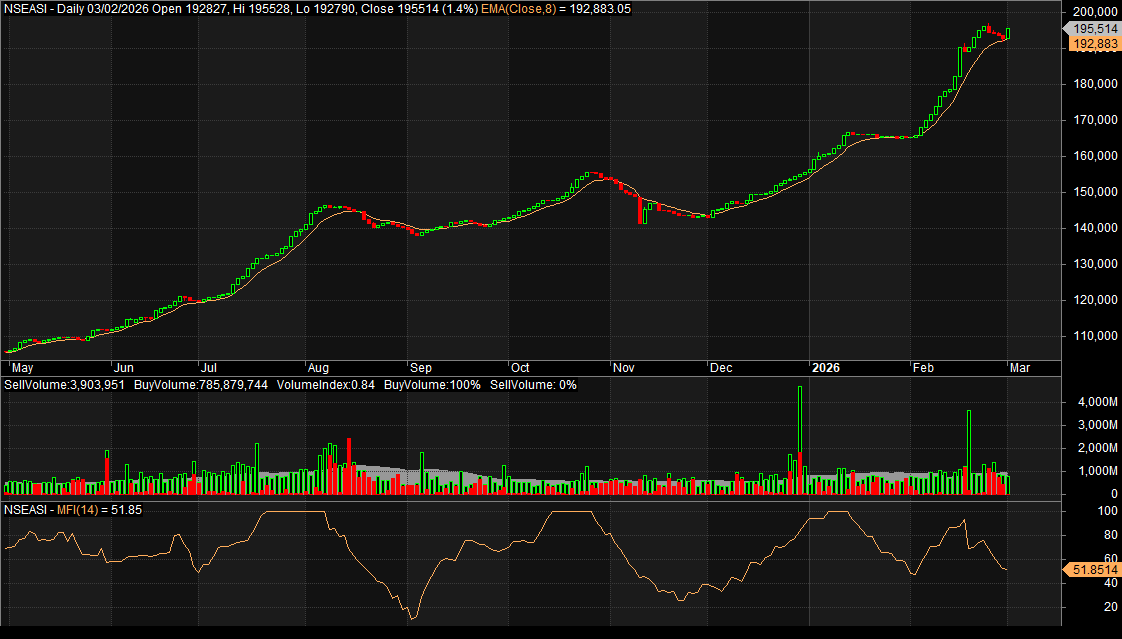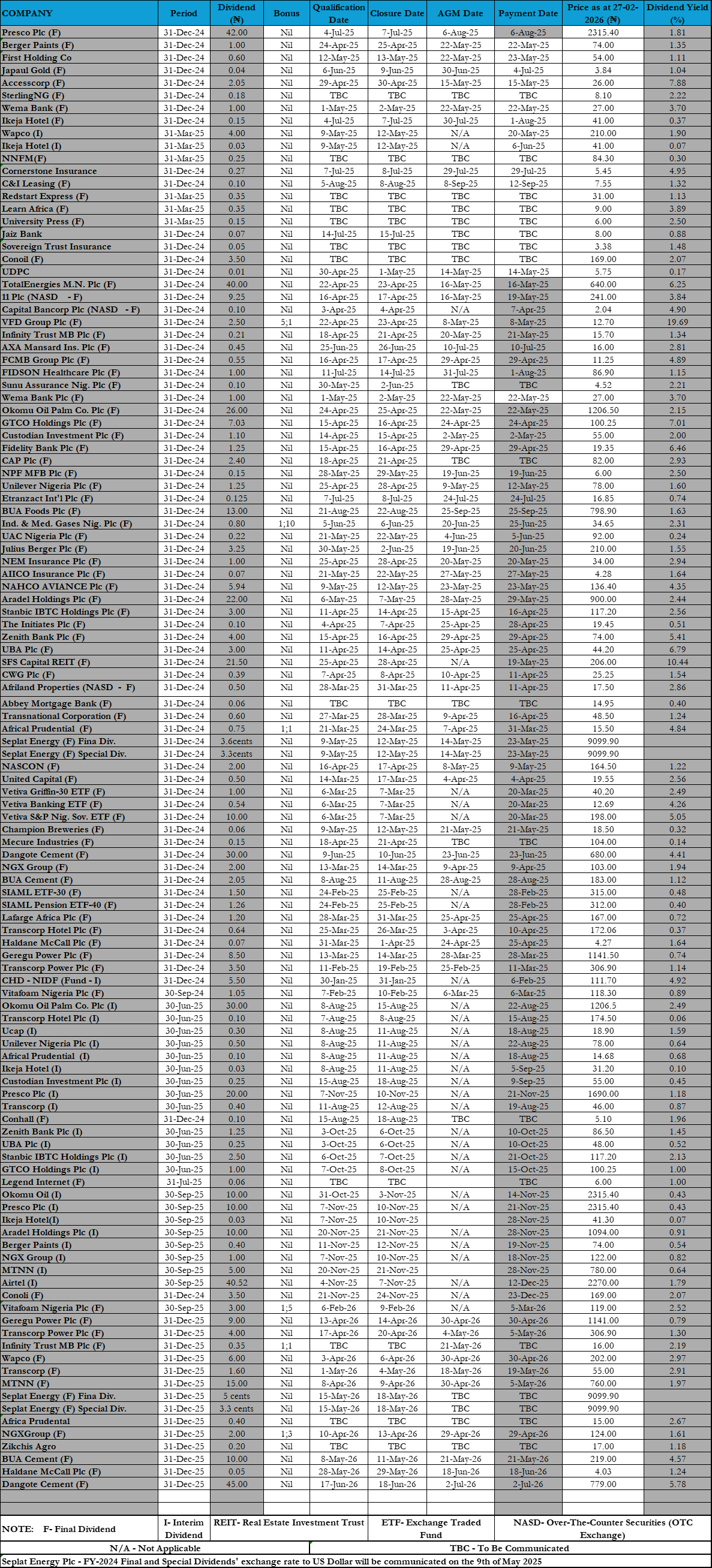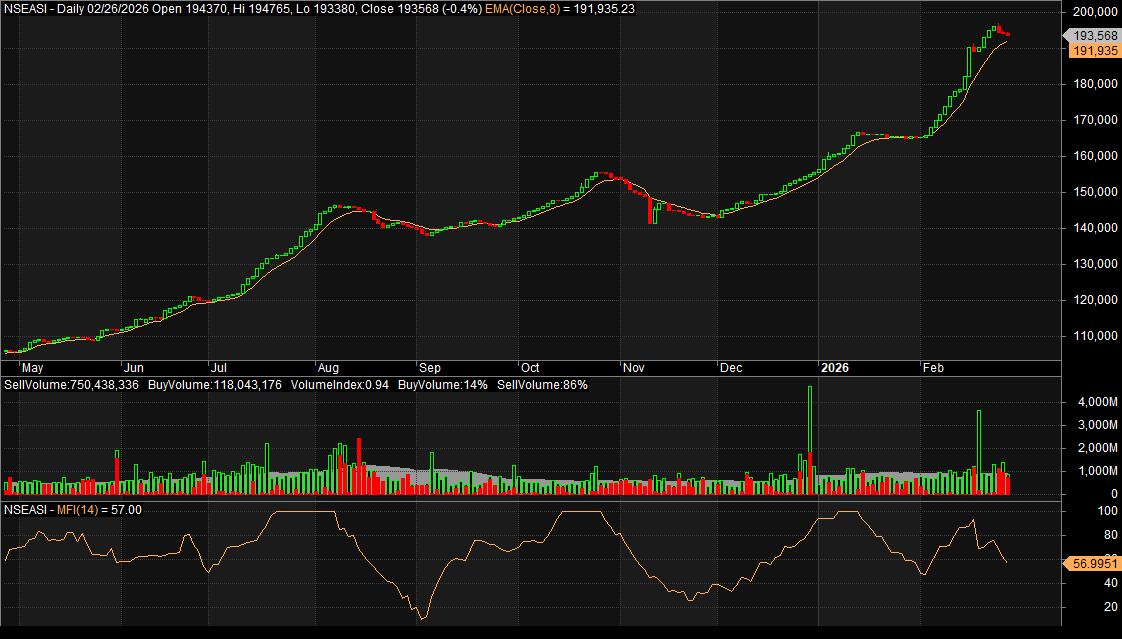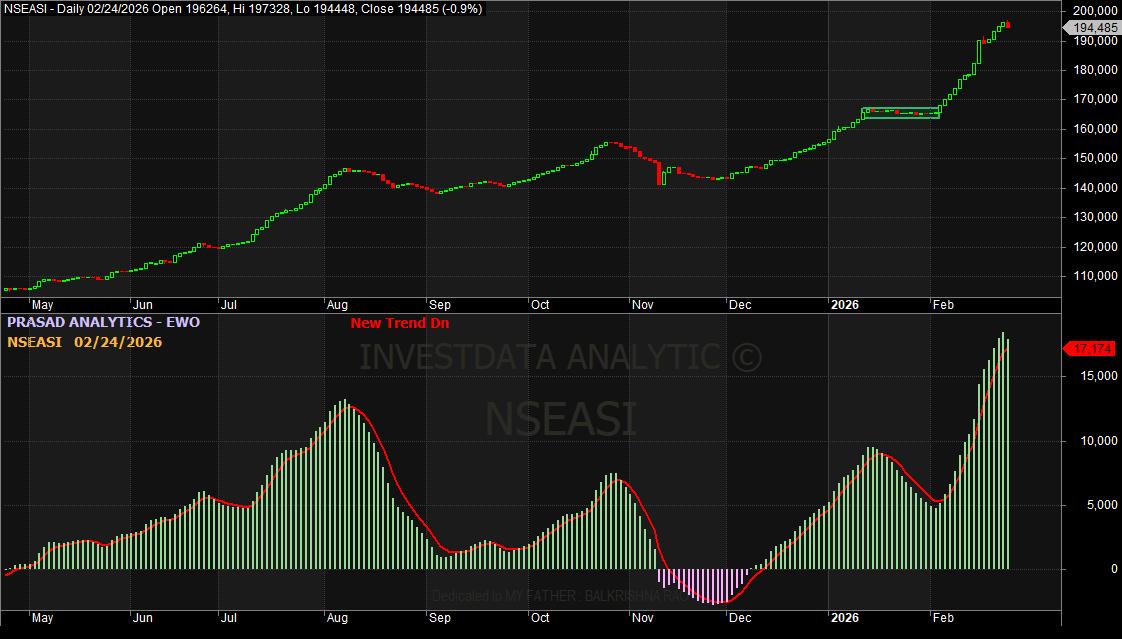
The Nigerian equities market wrapped up the week on a bearish note, reversing some of the gains posted in the previous two sessions as profit-taking dominated across major sectors. The NGX All-Share Index (ASI) fell by 0.29 percent to settle at 141,845.34 points from 142,263.07 points in the prior session, dragging the year-to-date gain down to 37.81 percent. This decline translated into a market capitalisation loss of ₦264.31 billion, leaving the total market value at ₦89.74 trillion.
The session’s negative close was largely attributed to renewed sell pressure on tier-1 banking names and industrial counters, as investors locked in profits following recent rallies. NGXGROUP shed 8.32 percent, UCAP dropped 7.56 percent, UBA lost 5.96 percent, ACCESSCORP fell 4.07 percent, ZENITHBANK dipped 3.03 percent, while DANGSUGAR, VITAFOAM, WEMABANK, OANDO, GTCO, TRANSCORP and FIRSTHOLDCO also closed lower. This broad selloff weighed heavily on the market breadth, which finished negative with forty-two decliners overwhelming just ten gainers.
Market activity, however, was robust. Total traded volume advanced by 33.87 percent to 435.24 million units, with market turnover closing at ₦15.13 billion across 24,309 deals. UBA led both the volume and value charts with 82.05 million shares traded, worth ₦3.55 billion. This accounted for 18.85 percent of total traded volume and 23.46 percent of market value for the day. ACCESSCORP and ZENITHBANK followed closely in terms of activity, while MTNN featured strongly on the value chart, showing that institutional investors remain engaged despite the day’s weakness.
On the macroeconomic front, sentiment was further tempered by global oil market movements. Brent crude prices fell 0.5 percent to $67.13 per barrel, while U.S. WTI declined 0.6 percent to $63.16 per barrel. The recent U.S. Federal Reserve rate cut — the first of the year — initially spurred optimism of stronger demand, but warnings from energy agencies, including the EIA, about slowing global consumption kept price action subdued. This development has implications for Nigerian energy-linked stocks, with investors likely to remain cautious on oil and gas counters until there is greater clarity on demand outlook and local price reforms.
From a technical perspective, the NGX All-Share Index continues to trade within a sideways range, consolidating recent gains while testing key support levels. The index is holding above its near-term support at 141,300 points, which has so far acted as a floor for prices. A sustained break below this level on strong volume could trigger a deeper pullback toward the 140,500 points region, which coincides with the 50-day moving average and may serve as a stronger demand zone. On the upside, immediate resistance sits around 142,800 points. A breakout above this level could reignite buying momentum, opening the way for a retest of the 143,500–144,000 points zone.
Momentum indicators such as the Relative Strength Index (RSI) and Money Flow Index (MFI) are currently trending toward oversold territory, suggesting that selling pressure may be easing and that a technical rebound could be imminent if bargain hunters return. The market’s volume pattern also shows accumulation in some blue-chip stocks, particularly in banking and telecoms, which could support an upturn if positive catalysts emerge.
Looking ahead to next week, we anticipate a mixed but potentially bullish bias as investors look to take advantage of recently discounted prices. The banking sector remains in focus, as attractive valuations in tier-1 names could trigger renewed buying interest. Consumer goods may also see selective demand, particularly in stocks like GUINNESS that have continued to demonstrate relative strength. The oil and gas sector could stay quiet pending more clarity on global crude price direction, while industrial goods may trade range-bound.
Liquidity levels in the financial system, foreign portfolio participation, and expectations ahead of Q3 earnings season will shape market sentiment in the coming days. Should macroeconomic news remain stable and crude prices find a floor, we may see an early-week rebound followed by cautious trading toward the end of the week as investors position ahead of major corporate results.
The session’s close confirmed the dominance of sellers as profit-taking in NGXGROUP, UCAP, UBA, ACCESSCORP, and ZENITHBANK led to the bearish finish. Market breadth remained negative with forty-two losers compared to ten gainers. DEAPCAP topped the gainers’ list, reflecting fresh demand in small-cap counters, while LIVINGTRUST led the losers’ chart. GUINNESS provided a bright spot, climbing to a fresh 52-week high of ₦183.90 despite the generally bearish tone, suggesting that select opportunities remain for medium- to long-term investors willing to ride out near-term volatility.



